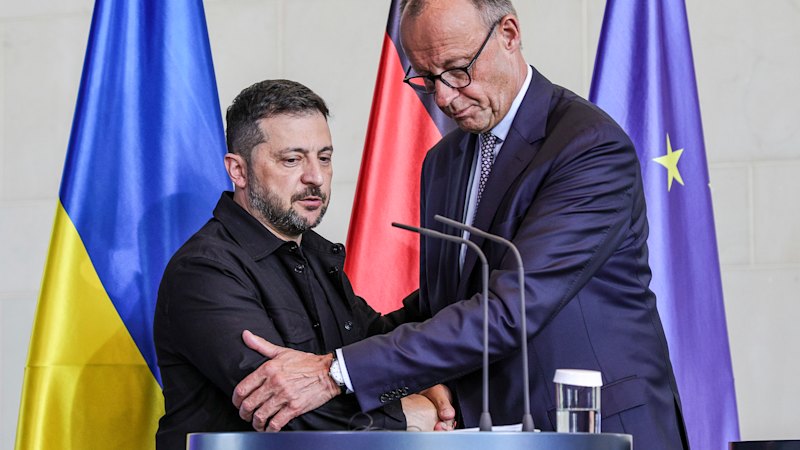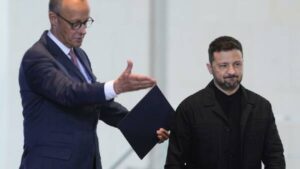
European leaders have unveiled a potential peace deal aimed at halting the ongoing war in Ukraine. The proposal, which seeks to be presented to Russian President Vladimir Putin during a meeting with US President Donald Trump on March 15, 2024, emphasizes a ceasefire as a prerequisite for any discussions about territorial issues.
The initiative emerged from an online conference that included major European leaders and President Trump. Concerns were raised about the possibility of Trump conceding territory to Russia without securing a comprehensive end to hostilities and future security guarantees for Ukraine. Ukrainian President Volodymyr Zelensky expressed skepticism about Putin’s intentions, characterizing the Russian leader’s claims of wanting peace as mere posturing. He urged for increased economic sanctions against Russia, pointing out that Putin’s actions suggested a strategy of intimidation ahead of the Alaska summit.
During the conference, President Zelensky stated, “I told the US president and all our European colleagues that Putin is bluffing.” He emphasized that Russia’s military advancements on the Ukrainian front were designed to project strength and dominance.
German Chancellor Friedrich Merz, who hosted the meeting, articulated a phased approach to negotiations. He insisted that any discussions regarding territorial adjustments should only occur following an initial ceasefire. “We want the correct sequence: first, a ceasefire. This must be at the very beginning,” Merz stated. He further added that Ukraine was open to negotiating on territorial issues, but the starting point should reflect the current contact lines.
As the conflict escalates, with Russian forces advancing and missiles targeting Ukrainian cities, the summit represents a crucial opportunity for establishing a ceasefire after months of heightened military activity. Merz warned that if no progress is made in Alaska, the US and European nations should consider amplifying their pressure on Russia.
President Trump hinted at the possibility of a subsequent meeting involving both Zelensky and Putin, contingent upon the outcomes of the Alaska discussions. He stated, “The first [meeting] is: I’m going to find out where we are and what we’re doing.” He expressed a desire for a second meeting “almost immediately” if the initial summit yielded positive results. Conversely, Trump acknowledged that if he felt the negotiations were unproductive, a follow-up meeting would not proceed.
When pressed about potential consequences for Russia should Putin refuse to agree to a peace deal, Trump warned of “very severe consequences,” although he refrained from providing specific details.
The online meeting was attended by leaders from the US, Germany, Finland, France, Britain, Italy, Poland, the European Union, and NATO. The discussions underscore the urgency surrounding the conflict and the collective commitment to seeking a peaceful resolution.
As the situation unfolds, the focus remains on whether the upcoming talks will lead to a viable path toward lasting peace in Ukraine.






